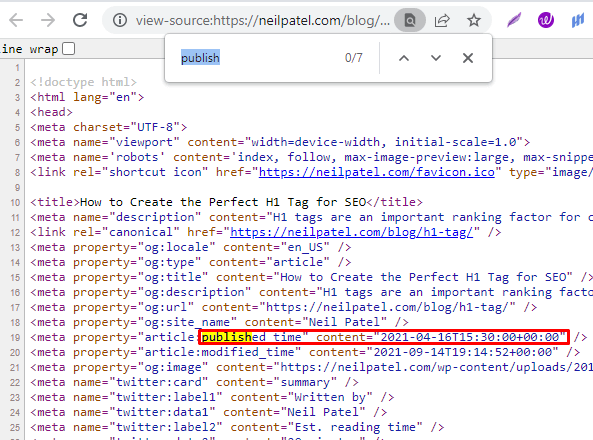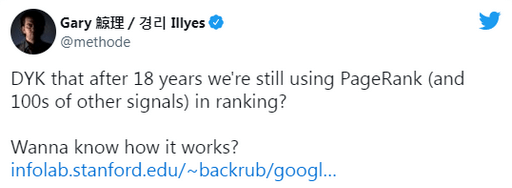Fame is incomplete without rumors. Sarcastically, of course. It happens with SEO as well. SEO executives, all over the world, get infuriated when they hear such rumors regarding SEO.
After all, it is something from which they earn their livelihood and nobody likes mockings & rumors regarding their source of income. Right?
Table of Contents
- 1 10 Common SEO Myths You Shouldn’t Believe!
- 1.1 Myth #1: You Must Not Use Multiple H1 tags
- 1.2 Myth #2: You Can’t Find Publishing Date If Website Owner Has Disabled It!
- 1.3 Myth #3: SEO Has No Connection With Web Design!
- 1.4 Myth #4: Google Can’t Find Out If You Have Spun or Scraped The Content!
- 1.5 Myth #5: Google Considers Backlink Quantity & Not Quality! Ridiculous!
- 1.6 Myth #6: There Is A Penalty For Duplicate Content
- 1.7 Myth #7: Social Media Presence Can Help Rankings
- 1.8 Myth #8: Page Rank Doesn’t Matter
- 1.9 Myth #9: SEO Is A One-Time Thing!
- 1.10 Myth #10: SEO & PPC Are Not Related In Any Way!
- 1.11 Conclusion
10 Common SEO Myths You Shouldn’t Believe!
After reading the views of Neil Patel about ‘How to Create the Perfect H1 Tag for SEO’ You must have considered using the H1 tag more than once as a sin. Is it so?
Read the text in both of these images:

Neil Patel says, “Use H1 Tag only once.”

John Mueller says, “You can use it multiple times without worrying about ranking.”
Myth #2: You Can’t Find Publishing Date If Website Owner Has Disabled It!
Holy Crap! Who is spreading such misleading information? There are multiple ways to do it.
1. Use inurl Operator
Copy the URL of the page whose publishing date you want to find. Paste it after typing “inurl:”. Once searched, go to the browser’s address bar and suffix it with “&as_qdr=y25”. You will get the date.
But sometimes it may not work. Like I was trying to find the publishing date of one of the blogs of Neil Patel. But this method didn’t work. Then I went with the second method.
2. Get To Know From Source Code
Click on the page whose publishing date you are willing to know. Now right-click from the mouse and left-click on ‘View Page Source’. A page filled with code will appear. Now, press “CTRL+F” and type ‘Publish” in the ‘Find Bar’.

Here you will not only get the information about the date, but you will get the right publishing time.
Myth #3: SEO Has No Connection With Web Design!
Do me a favor – Those who are spreading these kinds of rumors through their blog or article posts, just report them. Web Design Toronto is thoroughly related to SEO. When a website is being made to rank on the search engines, then an SEO executive must coordinate with a web designer & web developer.
The designers & developers are the professionals who do not care about the user experience. Their main focus is to deliver the project no matter whether it is search engine friendly or not. But SEO executives are the only ones who can judge a website from a search engine’s & User’s point of view.
For example: There are thousands of animation types but not every type is supposed to work with the websites. Only an SEO executive can do this kind of research.
Myth #4: Google Can’t Find Out If You Have Spun or Scraped The Content!
Google is much more advanced than you. If it has spinning websites on its search engines, it can also get to know who is making use of such websites and who are using the results obtained from such websites.
In addition to that, Google has announced a penalty for using spun content. If you are not improving it despite the penalty, Google will ban you.
Myth #5: Google Considers Backlink Quantity & Not Quality! Ridiculous!

Let’s consider the fact of the matter – ‘Why would Google prefer Backlink Quantity more than Backlink Quality?’ Google wants its search engine to become easily accessible, but not at the cost of irrelevance. Google will not consider your site trustworthy if you have irrelevant backlinks on your website.
Google prefers backlink quality over quantity. But it shouldn’t be the case that you are building just a few links.
Myth #6: There Is A Penalty For Duplicate Content
Though Google has made it clear several times that there is no such penalty for duplicate content, still people find pleasure in circulating such rumors.
Anyways, we are stating it again, “Duplicate content cannot get you penalized, though it can cause SEO issues for you.”
Myth #7: Social Media Presence Can Help Rankings
Google’s Search Advocate John Mueller has made it crystal clear, that social media presence or social signals are not supposed to have a direct impact on rankings.
To get more information about this, you can refer to this video link: English Google Webmaster Central office-hours hangout.
Myth #8: Page Rank Doesn’t Matter
Who said so? Garry Illyes (Gary Illyes is Google Webmaster Trends Analyst at Google) has informed through Twitter posts that Page Rank does matter to date and plays a major role in elevating your rankings.
Myth #9: SEO Is A One-Time Thing!
No, It is not! SEO requires you to be consistent with your efforts. It is not a one-time thing. It is a long process. You need to be consistent for almost 6 months or there will be rankings, no traffic, and no leads.
Myth #10: SEO & PPC Are Not Related In Any Way!
Yes, they are! SEO & PPC are surely related to each other. For example: Landing Page Optimization will not only benefit SEO, but it will benefit PPC as well. Apart from that, Rank Domination is subject to both PPC & SEO.
Conclusion
If you want to gain success in the SEO field, you need to have strong discretion between SEO myths & facts. If you want to read more such informational articles, keep on visiting our website.
Editorial Staff at WP Daily Coupons is a team of WordPress experts led by Peter Nilsson.


